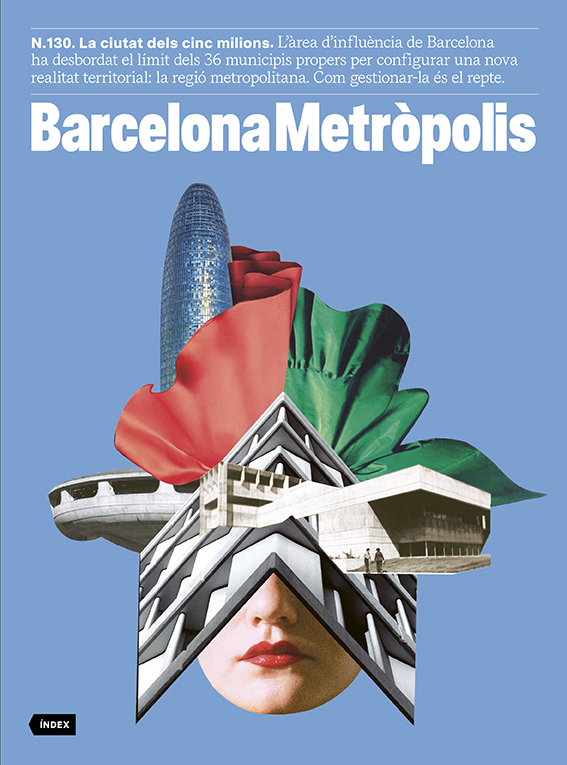Incantations against the whiteness of the cube
- Culture Folder
- Exhibitions
- Apr 24
- 5 mins
Picture yourself stepping into an exhibition that, rather than drawing from the conventional history of its discipline, draws upon all those subversive narratives historically relegated to the realms of superstition, witchcraft or enchantment. Reencantaments [Reenchantments], curated by Rosa Lleó (of The Green Parrot), at the Museu Etnològic i de Cultures del Món de Barcelona [Barcelona Museum of Ethnology and World Cultures], embraces these very dismissals. But fear not, for it is intentional. And hence the brilliance of Lleó’s curatorial vision, which he has been working on over the past year.
Until 29 September, you’re invited to explore a nuanced and boldly political exhibition that celebrates and champions enchantment, magic and, dare I say, even idiocy. The latest temporary exhibition at the Museum of Ethnology brings together nine artistic proposals rooted in the non-modern practices of the world, created by Chenta Tsai Tseng, Domènec, Agnes Essonti, Regina de Miguel, Ruta de autor, Lydia Ourahmane, Patricia Domínguez, Chiara Camoni and Nikki Luna.
Let’s delve a bit deeper into this notion of idiocy. Idiocy, as per its normative definition, embodies stupidity; something lacking sense, reason, foundation, and intelligibility. It might come as a shock to consider it as a scathing critique of the exhibition, an insult that reflects more on my professional ethics than on the exhibition project itself. However, conversely, to label Reencantaments as idiotic is to fully grasp the curatorial essence, the intentions of the participating artists, and the political foundations of the exhibition discourse. Its aim is nothing less than to dismantle the structures of exclusion and oppression historically perpetuated by colonial powers through their manipulation of historical, educational and cultural institutions. In Barcelona, Rosa Lleó invites us to a new parliamentary session on museum decolonisation.
 During the exhibition's preparation, Nikki Luna visited the museum reserves to view jewellery collections from the Philippines. © Rosa Lleó
During the exhibition's preparation, Nikki Luna visited the museum reserves to view jewellery collections from the Philippines. © Rosa LleóDecolonisation is no easy task. Indigenous peoples’ resistance spanning over 400 years attests to its complexity. The museum, concealed under the guise of preservation and study, continues to act as a legitimising force for European colonial endeavours, thus placing Europe in the spotlight, while disregarding the lives and realities of other territories. It is worth noting Hegel’s notorious remarks about Africa, in which he asserted that the societal organisation in those regions stemmed from the autocrat’s arbitrary control over other “equally savage” peoples. “Kings appoint ministers and priests tasked with practising witchcraft, wielding control over natural forces and influencing the climate”. Hegel’s chapter on the geographical basis of history not only witnessed the birth of racism but also grounded it in the divisive dichotomy of culture and nature, as extensively discussed by anthropologist Marisol de la Cadena. Africans were deemed savages or irrational, labelled as ‘idiots’, for their appreciation of natural elements such as the moon, rivers and mountains. It is striking that Hegel and the colonial world viewed the global unification, driven by modern progress, as achieved through “great divisions”, perpetually disrupting the planet’s self-sustainability and persecuting those who were most adept at cultivating global politics.
 Opening of the museum reserve drawers to select pre-Columbian ceramics – while preparing the exhibition – with artist Patricia Domínguez. © Rosa Lleó
Opening of the museum reserve drawers to select pre-Columbian ceramics – while preparing the exhibition – with artist Patricia Domínguez. © Rosa LleóThe term animism and colonial thought
Ecclesiastical and scientific authorities coined the term ‘animism’ to describe the vitalistic and ecological bonds shared by indigenous peoples. For them, their worldviews weren’t seen as “religious” or “spiritual” because they didn’t extend beyond these providences; they were simply deemed irrational worship of lifeless elements. Thus, persisting in using ‘animism’ for these worldviews perpetuates colonial thought, although its use can be politically relevant when challenging the epistemicide of the Enlightenment. As curator Anselm Franke suggests, an exhibition about animism “must use the concept of animism as the mirror of modernity that it was from the outset, while at the same time disempower the relations that the powerful imaginary of the term upheld”.
The exhibition follows an alternative approach, not driven by the urgency to establish universal laws of knowledge or practices.
Reencantaments goes beyond this speculative exercise. It delves into the very practice of reflection, the notion of total destruction through the poetic metamorphosis of artistic practices. It harnesses the concept of the “idiot”, drawing upon the conceptual framework developed by Deleuze and Stengers. The exhibition follows an alternative approach, not driven by the urgency to establish universal laws of knowledge or practices, but a moment of pause to acknowledge our limited understanding. The murmur, characteristic of the “idiot” when confronted with defenders of absolute knowledge, does not deduce; it creates. Since the idiot does not “convey” anything, no explanation is required. This lies in the transformative act itself, within the creative event. Quoting “Cosmopolitical Proposal” by Isabelle Stengers, “We must dare to say that the cosmic idiot’s murmur is as indifferent to the argument of urgency, as to any other. It does not deny it; it has only suspended the ‘and so…’, that we – so full of good will, so enterprising, always ready to talk on everyone’s behalf – master”. Curator Rosa Lleó has skilfully orchestrated the exhibition’s artists to continue a planetary dialogue of the “and so”, thanks to the murmur of the possible.
Reenchantments. Artists inside ethnographic collections
Museu Etnològic i de Cultures del Món (Montcada branch). Until 29 September 2024.
The exhibition, curated by Rosa Lleó, presents a reinterpretation of preserved ethnological objects, beginning with contemporary creation and imbuing them with fresh meanings and significance.
The newsletter
Subscribe to our newsletter to keep up to date with Barcelona Metròpolis' new developments




